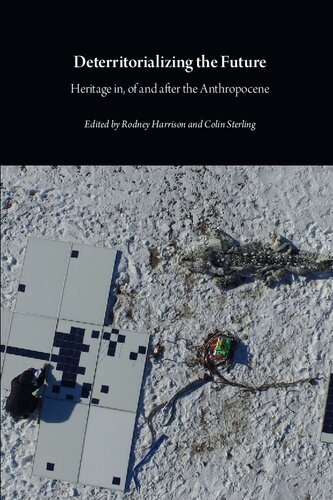

Most ebook files are in PDF format, so you can easily read them using various software such as Foxit Reader or directly on the Google Chrome browser.
Some ebook files are released by publishers in other formats such as .awz, .mobi, .epub, .fb2, etc. You may need to install specific software to read these formats on mobile/PC, such as Calibre.
Please read the tutorial at this link: https://ebookbell.com/faq
We offer FREE conversion to the popular formats you request; however, this may take some time. Therefore, right after payment, please email us, and we will try to provide the service as quickly as possible.
For some exceptional file formats or broken links (if any), please refrain from opening any disputes. Instead, email us first, and we will try to assist within a maximum of 6 hours.
EbookBell Team

5.0
108 reviewsUnderstanding how pasts resource presents is a fundamental first step towards building alternative futures in the Anthropocene. This collection brings together scholars from a range of disciplines to explore concepts of care, vulnerability, time, extinction, loss and inheritance across more-than-human worlds, connecting contemporary developments in the posthumanities with the field of critical heritage studies. Drawing on contributions from archaeology, anthropology, critical heritage studies, gender studies, geography, histories of science, media studies, philosophy, and science and technology studies, the book aims to place concepts of heritage at the centre of discussions of the Anthropocene and its associated climate and extinction crises – not as a nostalgic longing for how things were, but as a means of expanding collective imaginations and thinking critically and speculatively about the future and its alternatives.